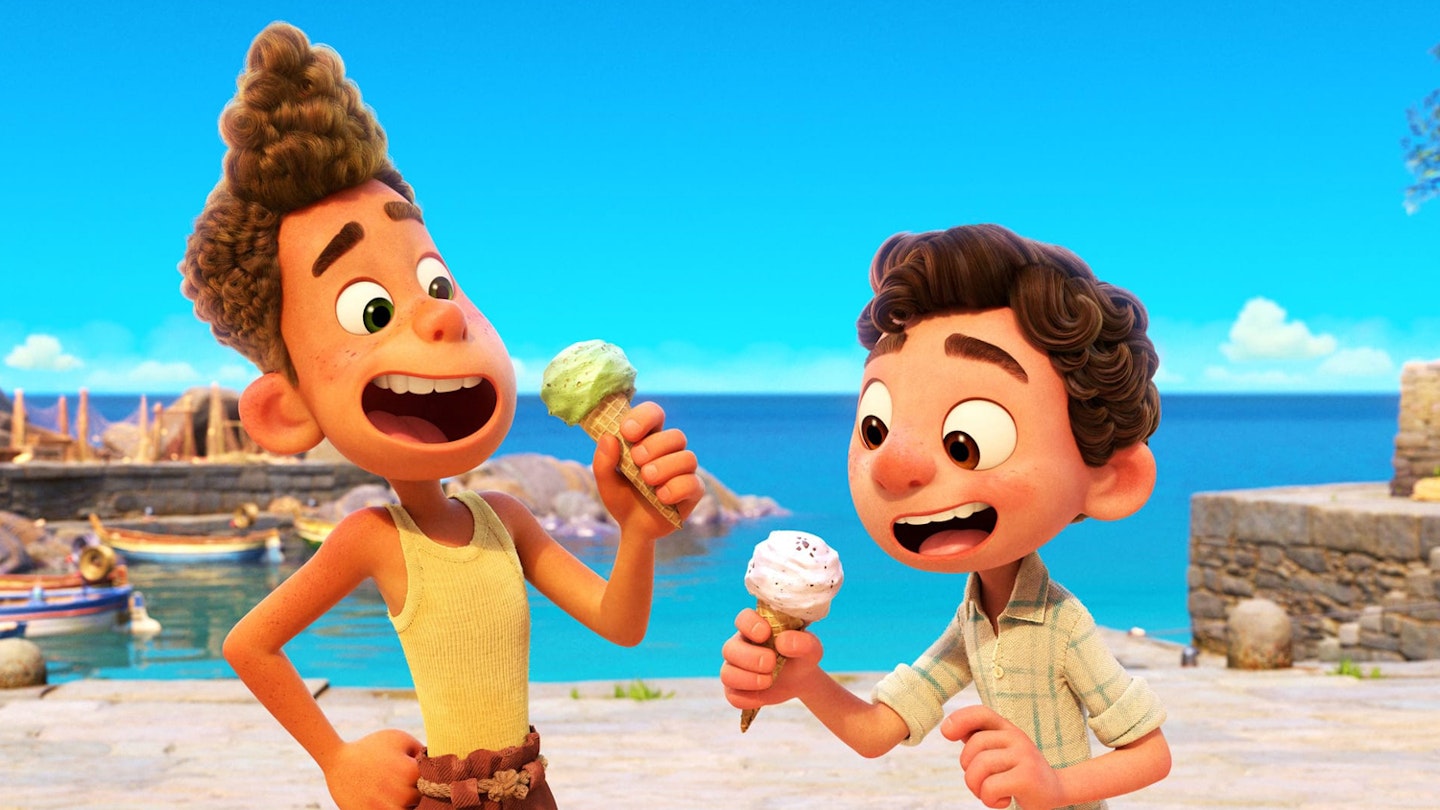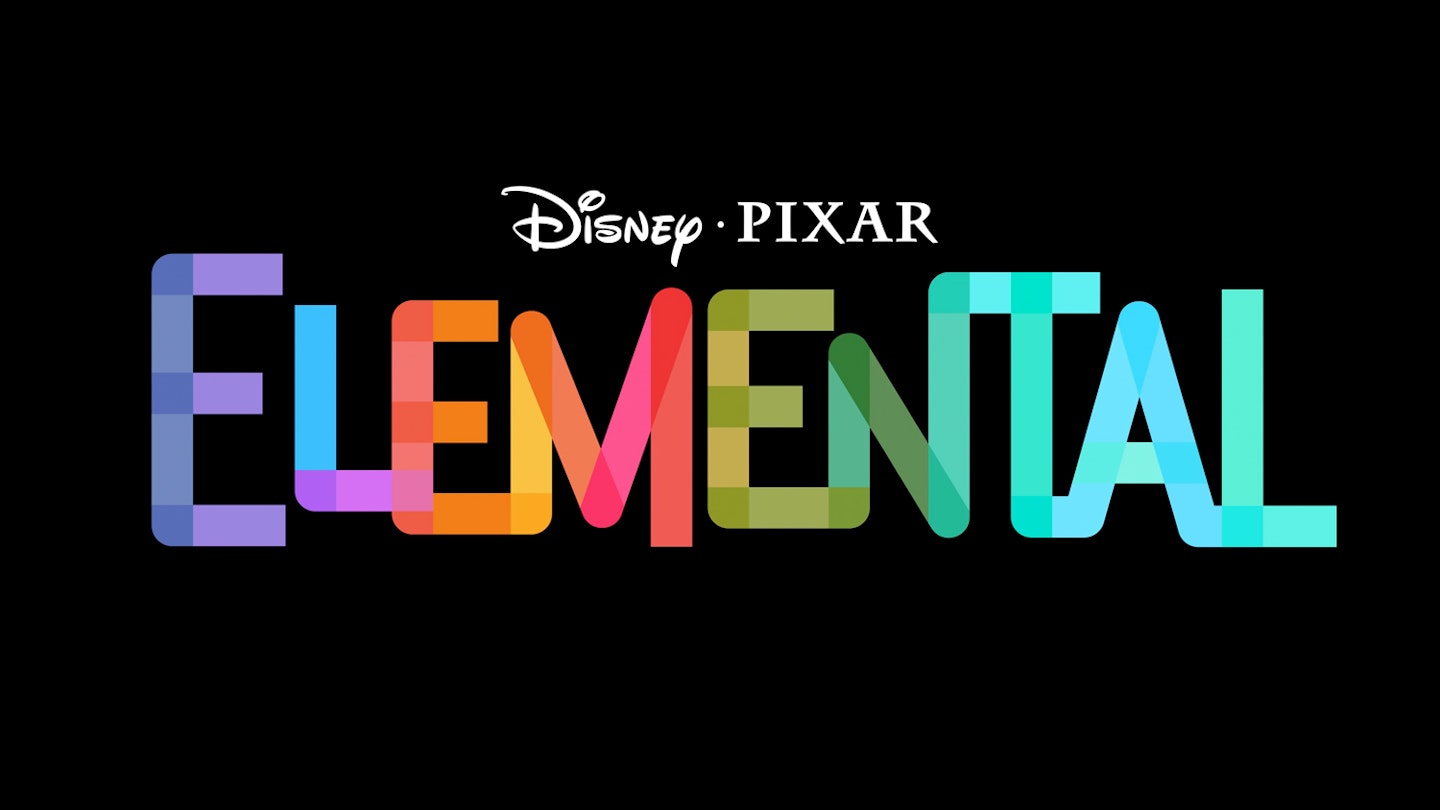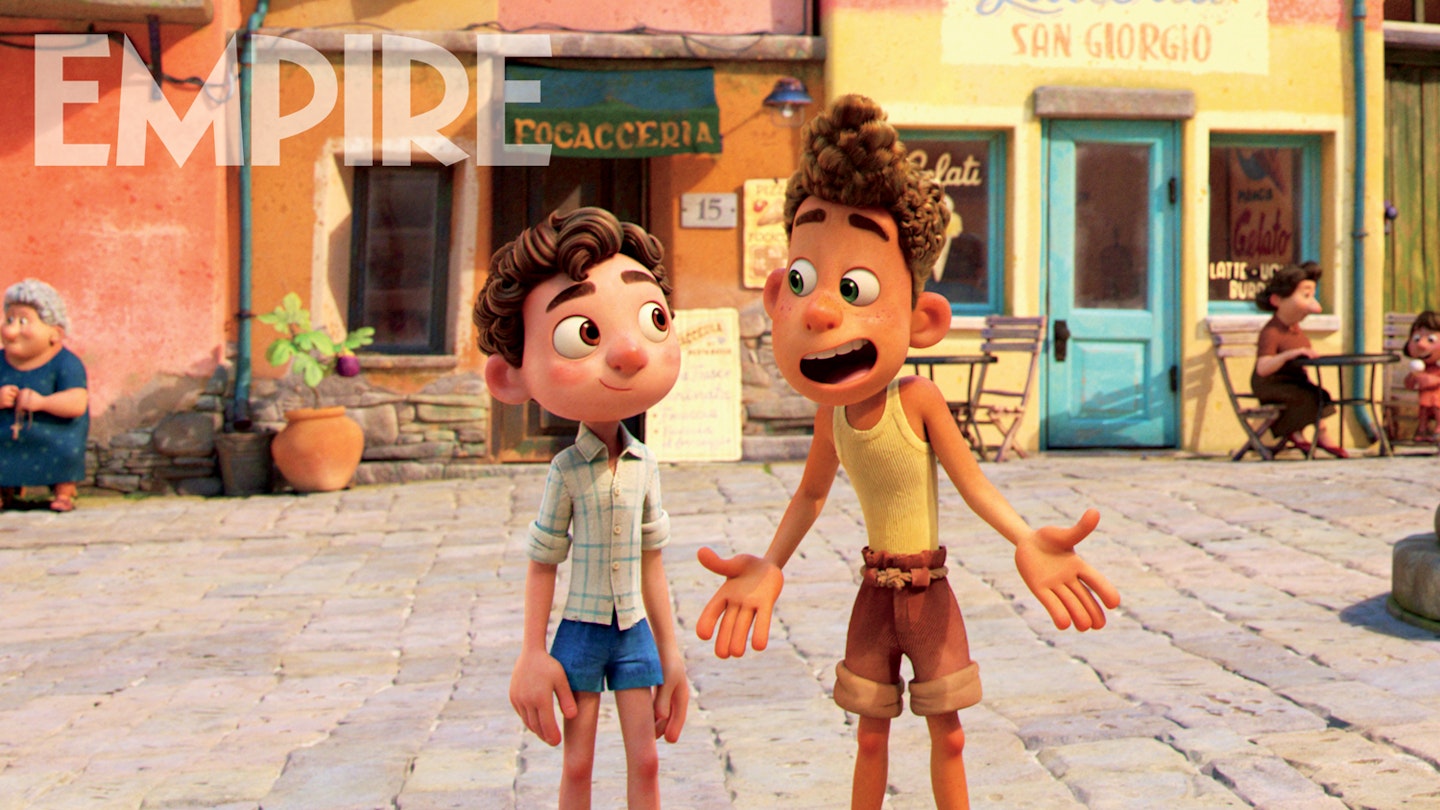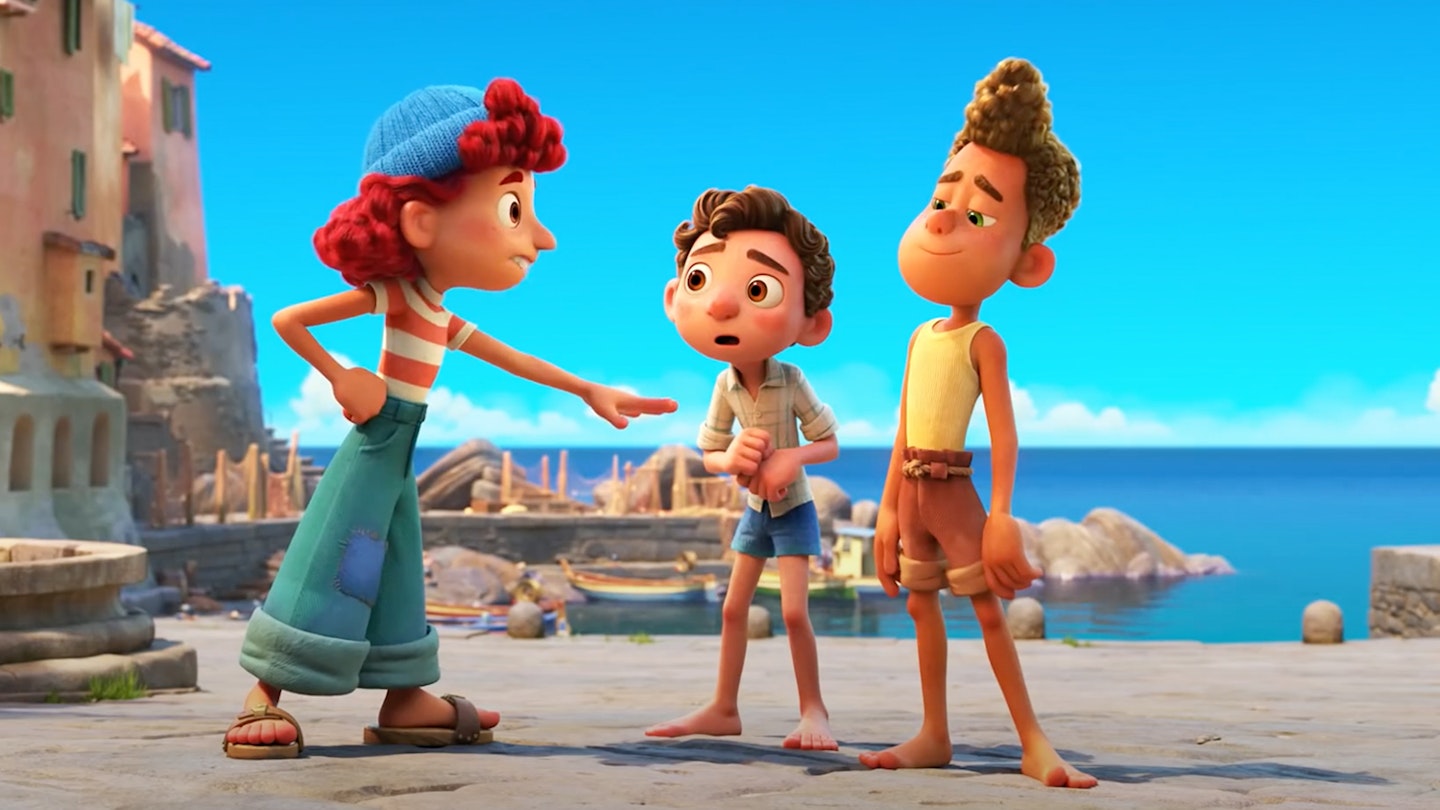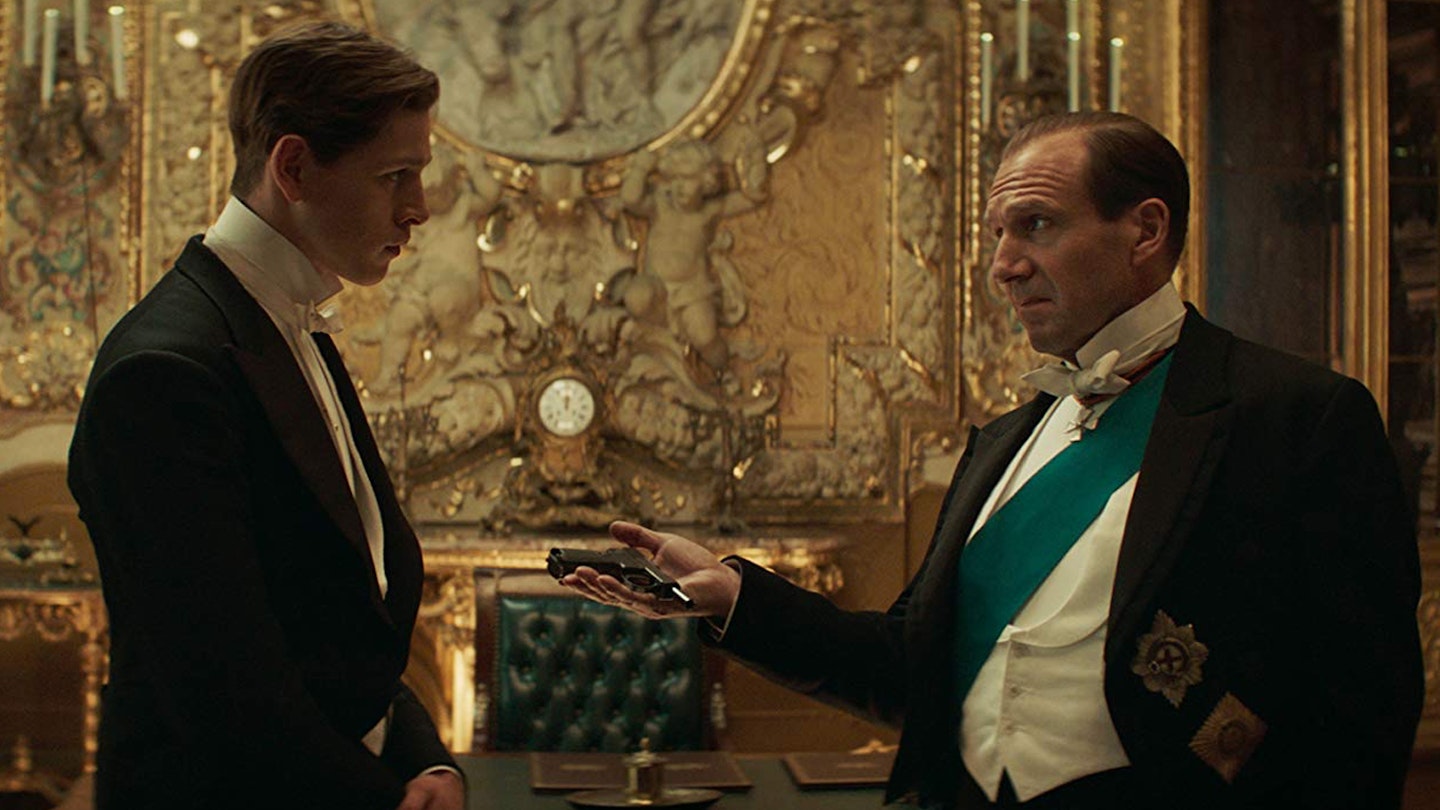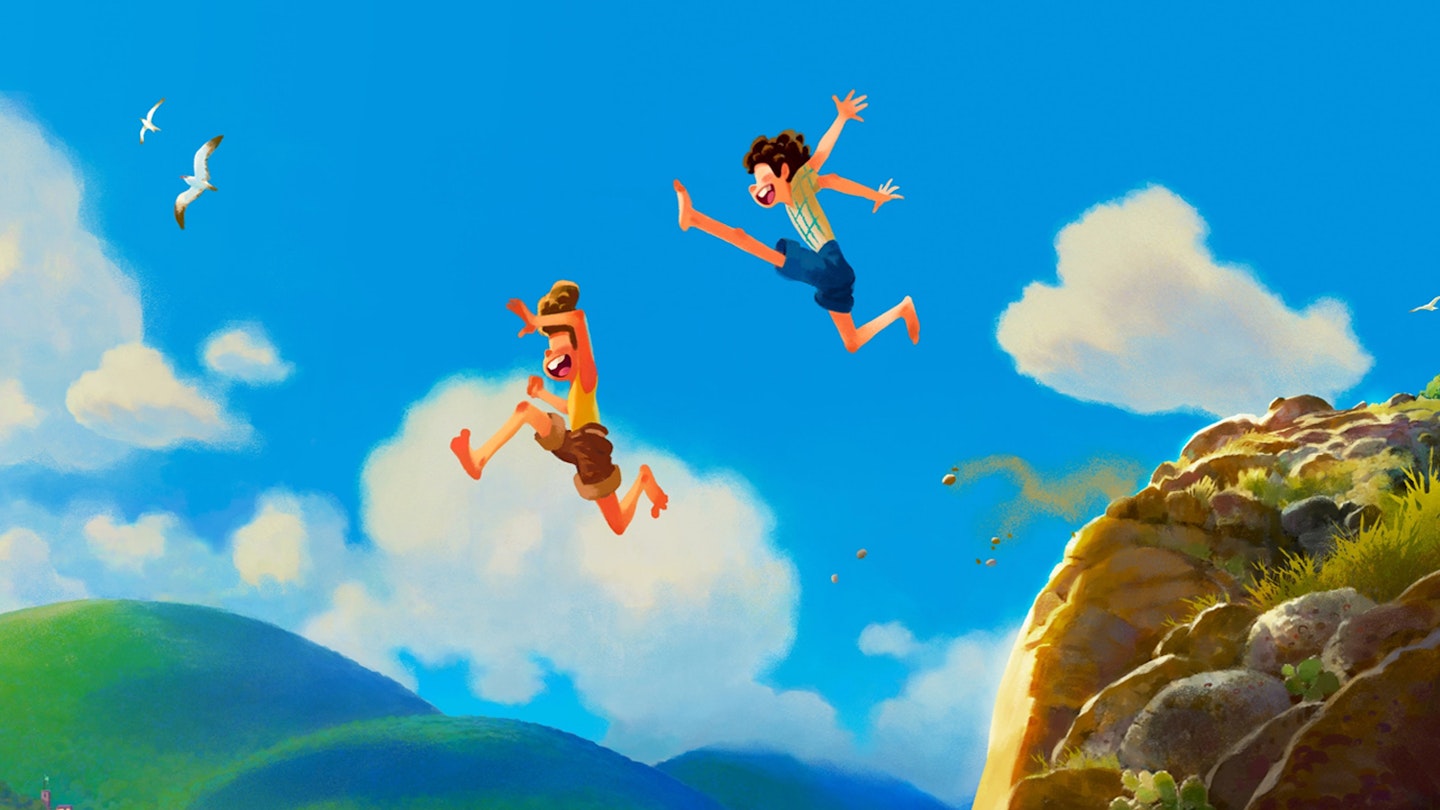There is a superb character in Luca: a deranged, bulbous, cheerful creature from the darkest depths of the ocean, with a mania for rotting fish-flesh and a peculiar speech pattern. “If you leave the mouth open, the whale carcass go in,” this see-through abomination, Uncle Ugo (Sacha Baron Cohen), enthuses of his favourite pastime. “It’s good. I recommend it.” Ugo is hilarious, and eccentric, and unexpected. Unfortunately, he’s only on screen for a fleeting few minutes, and in his absence those three qualities are somewhat lacking. Pixar’s latest is amiable and as bright as a scoop of gelato, easy to like in the moment. But like gelato it also feels a little disposable, short of the spectacle, emotional power and big laughs we’ve come to expect from the studio.
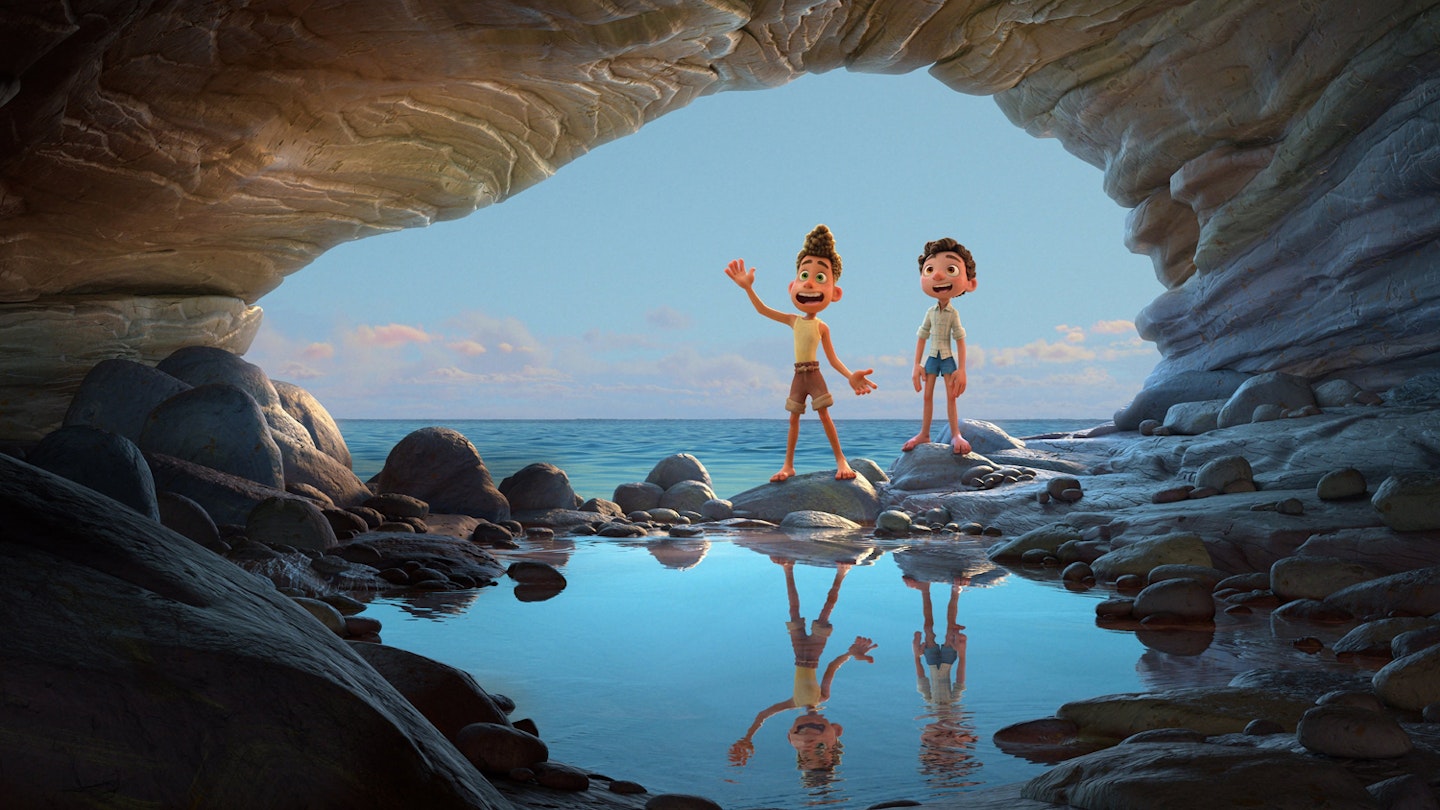
Where The Little Mermaid saw the tuna-y teen give up her tail in order to be with her human love, Luca has a somewhat different twist on the formula. In it, the titular red-eyed, slithery sea monster (voiced by Jacob Tremblay — also, incidentally, in the upcoming reboot of The Little Mermaid) heads to the surface, upon discovering that he takes on the appearance of a human upon becoming dry, in order to pursue his passion for Vespas. Yes, Vespas, the Italian motorised scooter immortalised by the poster for Roman Holiday and, to a lesser extent, Larry Crowne.
What stops the film short of greatness is a pervading generic quality.
Luca and his new pal Alberto (Jack Dylan Grazer) are obsessed by the things, chattering about them, drawing them and even making their own DIY version. And it is refreshing, at least at first, to have the plot pootle along like, well, an Italian motorised scooter, driven by two kids’ sun-baked daydreams. There’s no big villain and no grand quest, despite the movie establishing a race of guppy-ish, fish-herding aquatic beings and a nightmarish-sounding oceanic abyss (never seen on screen). Instead, it’s all about pasta-eating (linguine-animation techniques have come on in leaps and bounds) and beach-based bonding, as the two pretend-humans make friends with a local girl (Emma Berman).
There is quite a bit to like. Brought to life in pastel colours, the town of Portorosso (a nod to Studio Ghibli classic Porco Rosso) is charming and cosy, like a memory of a holiday you went on when you were eight. There are some pleasing character designs, like the hulking, one-armed fisherman with a belt stuffed full of stabbing implements, or his cat, Machiavelli, both of whom rock impressive moustaches. The odd fantasy sequence, meanwhile, draws winningly on Italian pop-culture and history: a bit with Da Vinci’s flying machine is like Hudson Hawk, but good.
What stops the film short of greatness is a pervading generic quality, particularly disappointing given the filmmakers have cited Fellini and Visconti as influences. Several characters yak in American accents, despite their Italian names. The fish monsters (Ugo aside) lack detail and personality. And while kids might spend the end credits trying to persuade their parents to buy them Vespas, there’s just not that much for grown-ups to latch onto. The big race sequence, when it arrives, has zips and twists in store, but the movie as a whole is oddly sleepy, rolling along pleasantly rather than blazing a trail.
